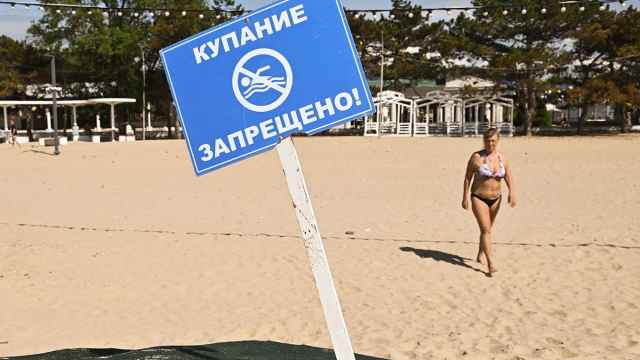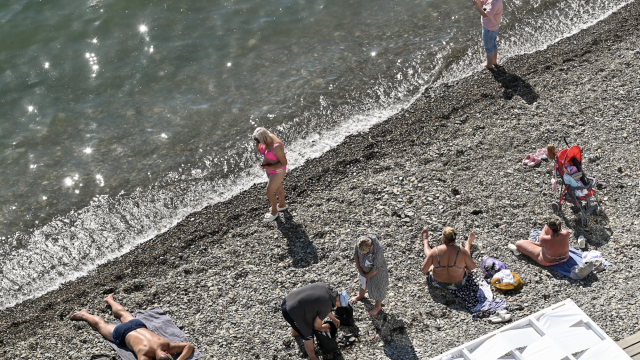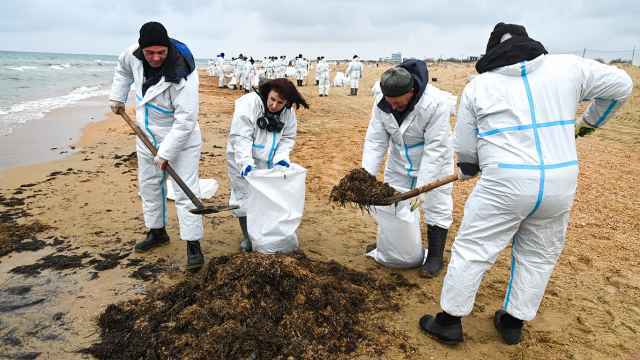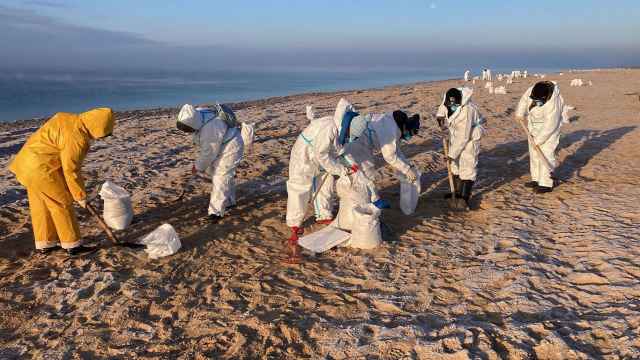Residents of a popular resort town in southern Russia have accused authorities of failing to clean up a toxic oil spill nearly six months after a major spill in the Black Sea, warning that summer heat could worsen the environmental disaster.
In a video message published on Sunday, around 100 residents of Anapa, a town in the Krasnodar region, criticized the slow government response to the December 2024 sinking of two Russian tankers that spilled heavy fuel oil into the sea.
“Pumping of fuel oil from sunken tankers has not yet begun,” they said. “Any sane person should understand that the leak will increase with the onset of heat.”
The tankers, which were caught in a storm on Dec. 15, were reportedly carrying around 9,200 metric tons of fuel oil known as mazut. Authorities estimate that roughly half of the cargo spilled into the sea, contaminating beaches across the region.
Since the incident, over 164,000 metric tons of polluted sand have been removed and nearly 550 kilometers of coastline cleaned. But officials say that the installation of three watertight barriers to prevent further leakage from the sunken vessels will not begin until October.
In their video, the group of Anapa residents said postponing action risks “a much larger disaster than in December,” warning that if the “rusty tanks with 4,000 tons of carcinogens fall apart in the heat,” the consequences would affect future generations.
They called the official cleanup deadline of February 2026 “extremely unacceptable” and accused officials of misusing state funds earmarked for relief.
“If there are no rapid response technologies in our country, then let’s ask China and Turkey for help. Let’s attract international specialists, but something must be done,” the residents said.
The Krasnodar region’s emergency response center said Monday that around 1,000 metric tons of contaminated sand were being removed daily from a village north of Anapa, with 35,000 metric tons collected over the month of May. It said no new oil slicks were detected on Anapa’s beaches.
In late April, the head of Russia’s consumer safety watchdog said more than 150 beaches along Russia’s southern Black Sea coast remained unsuitable for summer vacations due to ongoing contamination from the oil spill.
Despite the pollution, Russian authorities have organized spring and summer trips to the affected areas for groups, including children with disabilities, raising safety concerns.
The companies that own the two oil tankers involved in the disaster face multiple lawsuits from regional prosecutors, the Russian Maritime Rescue Service and the city of Anapa, which in March said that it had spent 211 million rubles ($2.4 million) on beach cleanup since the Dec. 15 spill.
According to an investigation by transportation authorities, the ships were not supposed to sail in the open sea during winter, as they were designed mainly for river navigation and calm coastal areas.
A Message from The Moscow Times:
Dear readers,
We are facing unprecedented challenges. Russia's Prosecutor General's Office has designated The Moscow Times as an "undesirable" organization, criminalizing our work and putting our staff at risk of prosecution. This follows our earlier unjust labeling as a "foreign agent."
These actions are direct attempts to silence independent journalism in Russia. The authorities claim our work "discredits the decisions of the Russian leadership." We see things differently: we strive to provide accurate, unbiased reporting on Russia.
We, the journalists of The Moscow Times, refuse to be silenced. But to continue our work, we need your help.
Your support, no matter how small, makes a world of difference. If you can, please support us monthly starting from just $2. It's quick to set up, and every contribution makes a significant impact.
By supporting The Moscow Times, you're defending open, independent journalism in the face of repression. Thank you for standing with us.
Remind me later.






